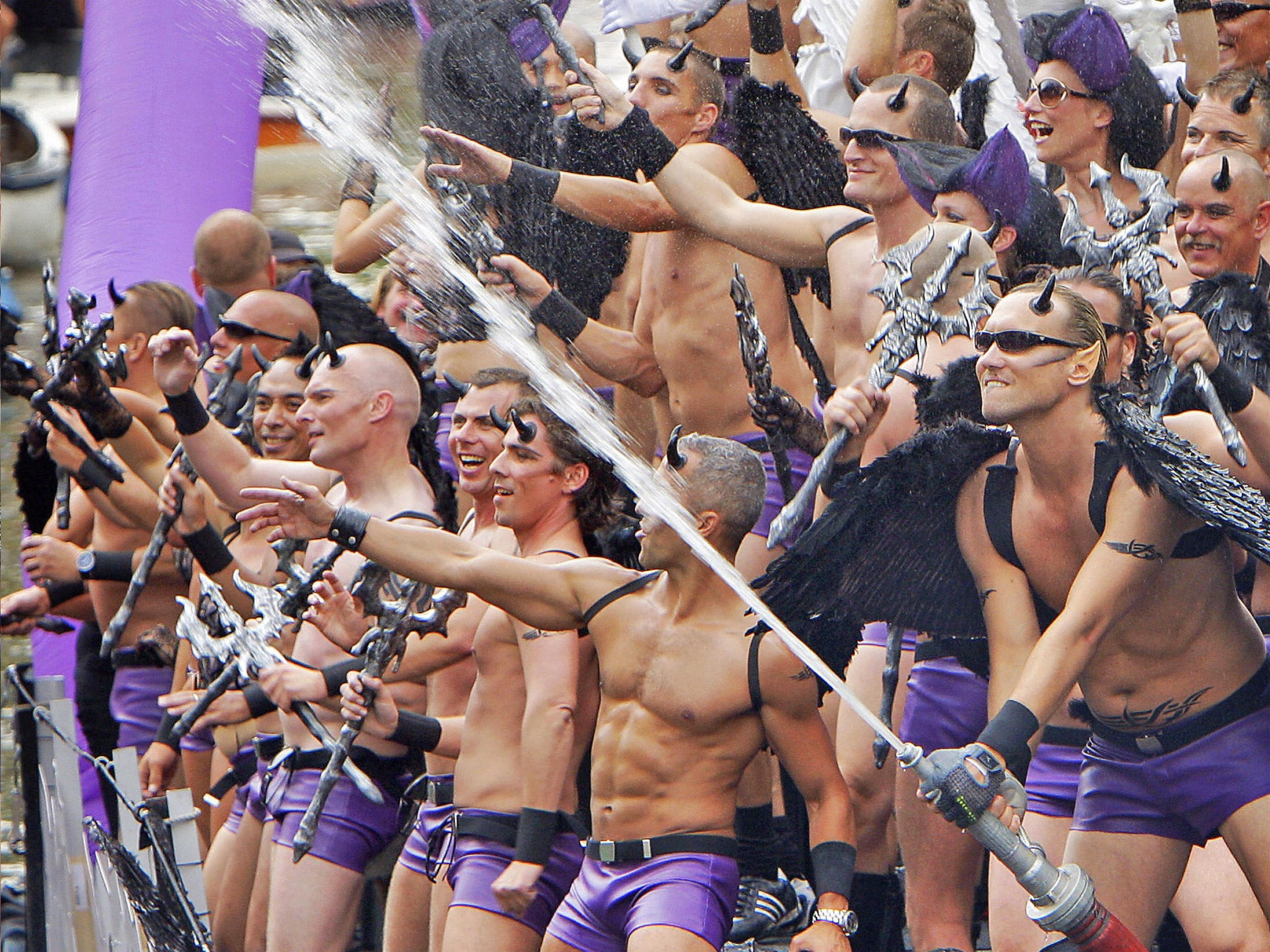No straight people allowed: Dutch scheme for 'Gay Village' sparks backlash
Opponents warn plan amounts to ghettoisation of people who should be able to feel safe without hiding behind locked gates

Your support helps us to tell the story
From reproductive rights to climate change to Big Tech, The Independent is on the ground when the story is developing. Whether it's investigating the financials of Elon Musk's pro-Trump PAC or producing our latest documentary, 'The A Word', which shines a light on the American women fighting for reproductive rights, we know how important it is to parse out the facts from the messaging.
At such a critical moment in US history, we need reporters on the ground. Your donation allows us to keep sending journalists to speak to both sides of the story.
The Independent is trusted by Americans across the entire political spectrum. And unlike many other quality news outlets, we choose not to lock Americans out of our reporting and analysis with paywalls. We believe quality journalism should be available to everyone, paid for by those who can afford it.
Your support makes all the difference.Update: The Gay Village project's founders have revealed it to be a 'serious hoax', designed to raise awareness about homophobia in the Netherlands. Read more here
A Dutch scheme to build a utopian gated neighbourhood exclusively for the gay community has sparked a backlash, with opponents warning that retreating to a “ghetto” will not help tackle homophobia and prejudice in society.
The project dubbed “Gay Village” by developers aims to give members of the lesbian, gay, bisexual, and transgender (LGBT) community a prejudice-free environment with luxuries including tennis courts and a cooking school.
But opponents warn that the plan amounts to the ghettoisation of people who should be able to feel safe without hiding behind locked gates. Peter van der Vorst, a Dutch radio presenter, tweeted that the village would be “a fenced gay ghetto” and said he hoped it was “a bad joke”. Author Cornald Maas said the “obsolete ghetto formation” was “disgraceful”.
Developers propose turning a patch of forested land on the outskirts of Tilburg into a gated community created with input from potential residents. The average price of a home would be €250,000 (£200,000).
“We go further than just housing,” the Gay Village website says. “Together with the future residents, we determine which services will provide for the community: its own supermarket, tennis court, a cooking school, a chapel or a gym, so you live in a quiet green area with all mod cons.”
The motivation for the project was “discrimination and violence against members of the LGBT community”, the website said, creating the “need for a neighbourhood... which gives a greater sense of social cohesion and security”.
The Netherlands ranks as one of the most gay-friendly societies in Europe. But homophobia remains, with recent surveys showing nearly a quarter of gay men in the Netherlands feeling unsafe in their neighbourhoods. Last weekend a gang assaulted a gay couple in Amsterdam, a city with a reputation as one of the most tolerant in the world.
Tanja Ineke, president of the gay rights group COC Netherlands, said that it should be society and law enforcement acting to make everyone feel included and safe.
“This is not the direction we want to go in to solve the security problems of the LGBT community,” she said. “It is up to the police, local authorities and central government to solve them so that LGBTs in every city, every neighborhood and every street feel safe, not only in a separate area with a fence around it.”
The plan has won the backing of Tilburg’s mayor, Peter Noordanus, who said: “A tolerant city is pleased to have a gay community within its borders.”
The developer proposing the idea has created an online survey to gauge interest from a sector of society often courted for its disposable income.
Amsterdam has a retirement home for the LGBT community and similar projects are underway in France, Spain and Sweden. The United States is already home to several communities aimed at attracting the pink pound.
While potential profits are one incentive, helping battle institutional discrimination is a factor. When the nursing home Gay Care Amsterdam opened earlier this year, its founder said he wanted to ensure elderly people did not feel they had to hide away photographs of same-sex partners.
Subscribe to Independent Premium to bookmark this article
Want to bookmark your favourite articles and stories to read or reference later? Start your Independent Premium subscription today.